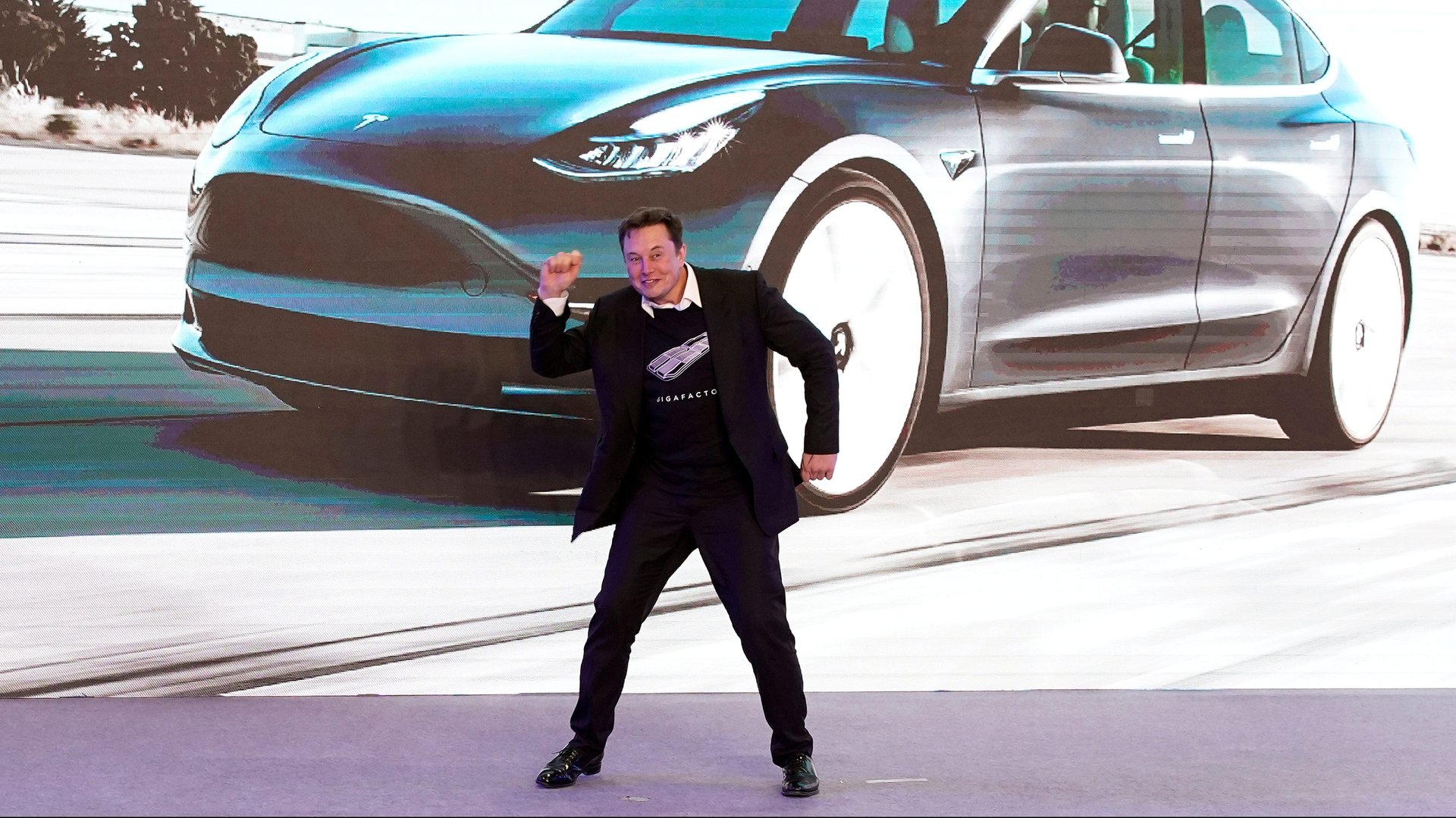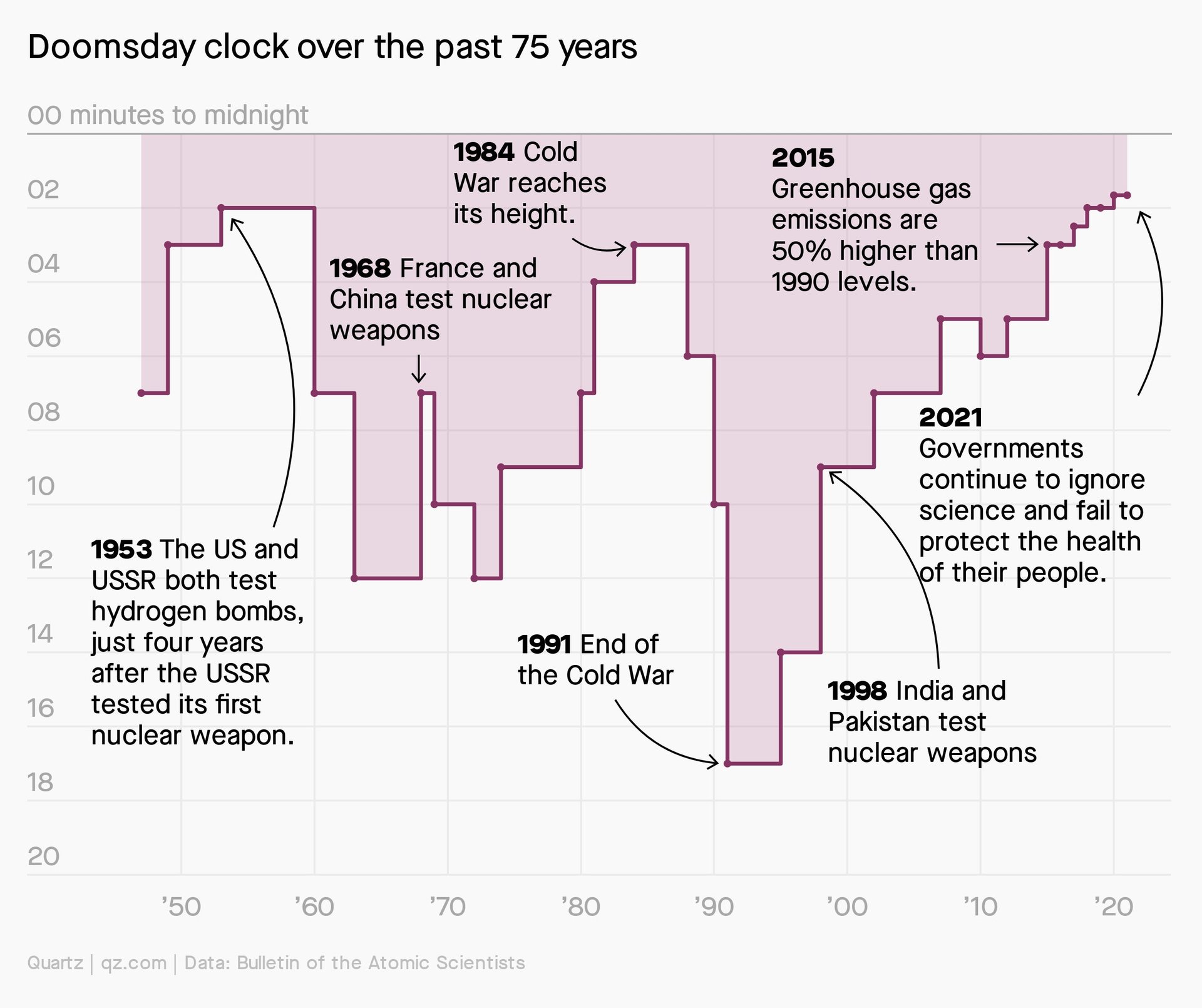GameStop frenzy, Tesla falls short, wolf moon
Good morning, Quartz readers!


Good morning, Quartz readers!
Here’s what you need to know
What happened to GameStop? A Reddit user told Quartz how he helped drive the company’s share price surge, infuriating institutional investors and alerting the White House.
The Olympics are still on, for now. The International Olympic Committee said it’s “committed to the successful and safe delivery” of the games in Tokyo this summer.
Joe Biden signed climate change orders. The US president made the issue a national security concern, and the order cancels new oil and gas leases on public lands.
Tesla recorded its first profitable year. But the automaker still fell short on earnings, while Facebook and Apple posted record profits.
Ant Group reportedly faces a revamp. The fintech giant will reposition itself as a financial holding company overseen by China’s central bank, the Wall Street Journal reports.
AstraZeneca finds itself stuck between London and Brussels. The EU says it won’t accept the vaccine maker’s first-come, first-served argument for prioritizing Britain’s Covid-19 shots.
A WHO-led team is investigating Covid-19’s origins in China. The experts completed their two-week quarantine, and can finally get to work.
What to watch for

The Sundance Film Festival kicks off today, and for the first time ever, it will be virtual. Normally, thousands of film critics, executives, and cinephiles pack into theaters in snowy Park City, Utah to catch a glimpse of the next potential Oscar winner. This year, they’ll have to settle for the couch.
But it’s a fitting launching point for what is becoming Hollywood’s new normal. Theatrical distribution is still a lucrative business, but for most Hollywood players it will only be one piece of a broad strategy focused on streaming and at-home entertainment experiences. WarnerMedia, for instance, will release all of its 2021 movies on its streaming service, HBO Max, at the same time they’re released in theaters—even in the second half of the year, when theaters are expected to return to some semblance of normal operations.
Sundance will likely return to being an in-person event in 2022, but Hollywood’s momentum toward a streaming-dominant ecosystem will continue. The buyers and sellers that descend on Park City each year to elevate indie films into global hits will still attend, but they’ll be buying and selling with the goal of attracting subscribers—not putting butts in theater seats.
Charting the Doomsday Clock

The Bulletin of the Atomic Scientists announced today that it is keeping the minute hand of the “Doomsday Clock” at 100 seconds to midnight. (In the parlance of the Doomsday Clock, midnight is doomsday.)
Typically a comment on threats like nuclear weapons and climate change, disease has rarely played a factor in setting the clock. This year, the Bulletin said Covid-19 “will not obliterate humanity” (good to know) but “the pandemic serves as a historic wake-up call.” In itself, though, the misery of 2020 had no effect on the 2021 clock position.
Climate risk is about to reshape Wall Street
This is no longer a shouting match between divestment campaigners and banks that don’t want to do anything. —Ilmi Granoff, director of sustainable finance at the ClimateWorks Foundation
Earlier this week, the US Federal Reserve and European Central Bank simultaneously signaled their intent to make climate considerations a central part of finance, promising to analyze the risk climate change poses to the stability of individual banks, as well as the broader financial system.
While neither body is charged with decarbonizing the economy, their mission to ensure banks’ solvency and avoid systemic risk (such as the sub-prime mortgage crisis of 2007-2008), is precisely what is elevating climate as a critical concern. Michael Coren explains just how they intend to do it.
✦ We’ve assessed the risk of not being a Quartz member, and the outlook is: just kind of dull? Try it out free for seven days.
Surprising discoveries
Philadelphia gave a 22 year old the job of administering vaccines. Two weeks later, he was fired.
The oldest grizzly bear in Yellowstone is a millennial. No word on if it went through a Grizzly Bear phase like the rest of us.
The wrong kind of booty call. China is rolling out new anal coronavirus swabs which are said to be more accurate than throat samples.
Walmart is sending a robot. Associates will still pick produce and seafood, while robots will collect boxed items.
Behold the full wolf moon. The first full moon of the year was thought to bring out more howls than usual.
Our best wishes for a productive day. Please send any news, comments, middle-aged bears, and apocalyptic timepieces to [email protected]. Get the most out of Quartz by downloading our iOS app and becoming a member. Today’s Daily Brief was brought to you by Hasit Shah, Jane Li, Tripti Lahiri, Michael Coren, Susan Howson, and Jordan Lebeau.